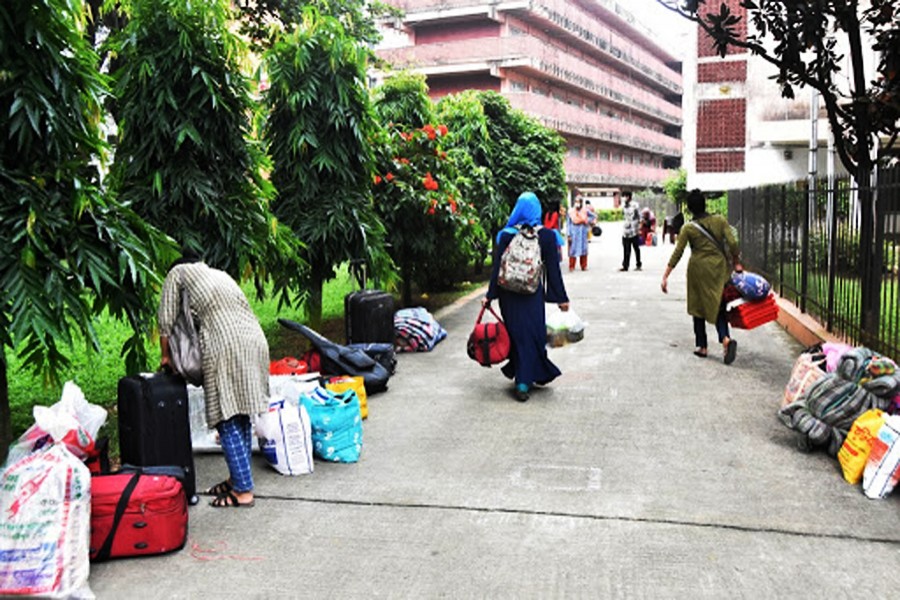Dhaka University (DU) has been served with a legal notice over its rule banning married and pregnant female students from residing in its dormitories.
The rule is ‘extremely discriminatory’ against women and should be scrapped, the legal notice said.
Supreme Court lawyer Mohammad Shishir Manir, a Dhaka University alumnus, sent the notice to the vice-chancellor of the university, the registrar, the proctor, and the provosts of three dormitories for women students -- Shamsunnahar Hall, Bangladesh-Kuwait Friendship Hall, and Sufia Kamal Hall.
“The rule, which is extremely discriminatory against women, should be scrapped in three workdays or else we will take whatever steps are necessary,” the lawyer said. “We’ll go to the High Court.”
“Rule No. 16 of Shamsunnahar Hall’s seat allocation and disciplinary rules includes a provision to cancel the dormitory seat for any married or pregnant female student. It is highly discriminatory,” Shishir Manir said.
He said the rule will prevent married female students from pursuing higher studies without a proper residential provision, reports bdnews24.com.
Students have previously held demonstrations over the issue. The media has also highlighted the existence of such a rule at the highest educational institution in the country.
According to Article 27 of the Constitution, all citizens are equal to the law and the state cannot discriminate against any citizen based on their religion, community, race, gender or place of birth, according to Article 28 of the Constitution. Therefore, the rule is contradictory to these two articles.
Students have called for the law to be scrapped.
“Is it a crime to be married?” a student said. “Why should motherhood interfere with a student’s ability to live in a residential hall?”
A group of women students from five residential halls at Dhaka University held a press briefing on the issue on Friday. They presented a four-point list of demands, which included the removal of the rule.
Their demands were:
>> Scrap the existing rule banning married female students from residing in halls
>> To respect students as adults, the phrase ‘emergency contact’ has to be used instead of ‘local guardian’ on forms
>> Any harassment or non-cooperation by residential teachers, officials and staff should be stopped and exemplary actions should be taken against them
>> Non-resident students should be allowed to enter the halls when their academic session is ongoing, and they should be allowed to reside in the halls in case of emergency
Prof Abdul Basir, president of the provost committee, said the students’ demands have been included in the agenda for the next committee meeting.


